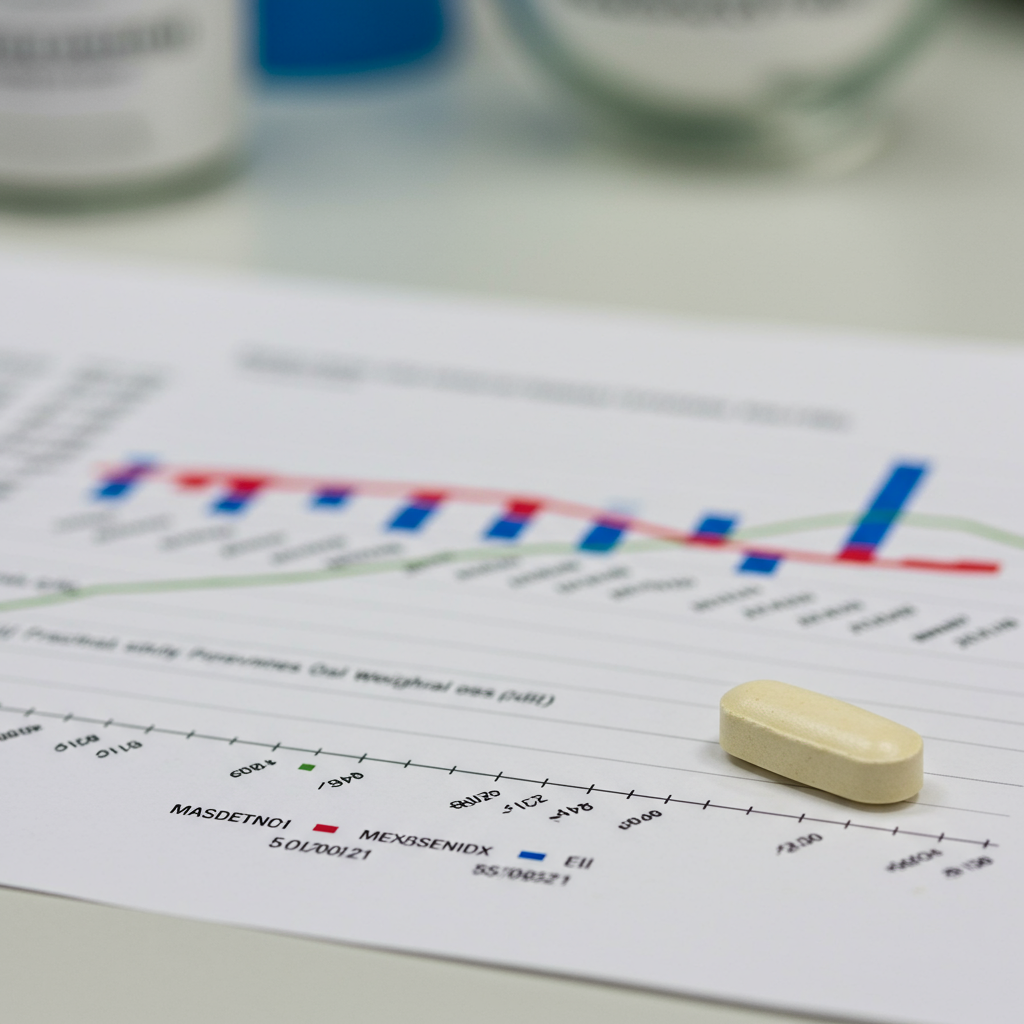Eli Lilly’s Oral Weight Loss Pill Shows Strong Performance in Clinical Trial
Eli Lilly & Co.’s experimental oral weight-loss pill has successfully navigated a key clinical trial, demonstrating significant potential and bolstering the company’s competitive standing against rivals like Novo Nordisk in the burgeoning obesity treatment market. The positive results are particularly impactful as pharmaceutical companies race to develop convenient, non-injectable options for weight management.
Data presented at the American Diabetes Association conference in Chicago revealed compelling findings from a 40-week study. Patients with type 2 diabetes receiving the highest dose of the experimental drug achieved an average weight loss of 7.6% of their body weight (equivalent to approximately 16 pounds), with some analyses citing up to 7.9% loss. These results, published in the New England Journal of Medicine, position the pill as a potential alternative to existing injectable GLP-1 agonists.
Crucially, the trial reported no signs of liver damage among patients taking the drug. This safety profile is a significant win for Eli Lilly, as concerns over potential liver issues have hampered previous attempts to develop highly potent oral weight-loss medications, notably leading one major competitor, Pfizer, to halt development of its own oral candidate, danuglipron, after a case of suspected drug-induced liver injury arose.
The Promise of an Oral Option
The global market for weight-loss drugs is projected to reach $100 billion or more in the next decade, moving beyond injectable treatments like Novo Nordisk’s Wegovy and Eli Lilly’s Zepbound. While highly effective, injections can pose a barrier for some patients. An effective, well-tolerated pill offers a significant advantage in convenience.
Eli Lilly’s oral candidate, which is a small-molecule GLP-1 receptor agonist, stands out as the first such oral medication to successfully complete a Phase 3 trial. A key benefit highlighted is its potential for once-daily dosing without the strict timing or food and water restrictions often associated with other oral medications in this class. This “hassle-free” aspect could greatly improve patient adherence and broad accessibility.
A Highly Competitive Landscape
Eli Lilly and Novo Nordisk currently dominate the weight-loss market, but the field is rapidly expanding. Eli Lilly’s pipeline is robust, including its successful injectable Zepbound and other candidates like the promising injectable retatrutide, alongside this oral pill.
Novo Nordisk is also innovating, developing its own oral candidate, amycretin, which showed strong early results in a Phase 1 trial, achieving up to 13% weight loss in just 12 weeks in one arm. However, Lilly’s oral pill has now completed a pivotal late-stage trial, putting it on a faster track for potential approval.
Beyond the two leaders, numerous other pharmaceutical and biotech firms are investing heavily in the space, with companies like Roche, Amgen, Merck, AstraZeneca, and smaller players like Viking Therapeutics and Structure Therapeutics pursuing both injectable and oral options. The recent safety-related exit of Pfizer from the oral GLP-1 race underscores the technical challenges involved in developing effective and safe oral formulations.
What’s Next for Lilly’s Pill?
Eli Lilly plans to seek regulatory approvals for the oral weight-loss pill by the end of the year. The company is conducting a large-scale Phase 3 clinical development program, involving over 6,000 participants, and is also exploring the pill’s potential in treating related conditions such as obstructive sleep apnea and hypertension.
If approved, Eli Lilly believes the oral pill can be manufactured and launched at scale globally, offering a crucial new and convenient option for millions seeking effective weight management. However, the significant cost of these cutting-edge weight-loss medications and challenges with insurance coverage remain significant hurdles for widespread patient access.
Overall, the successful trial results for Eli Lilly’s experimental oral weight-loss pill mark a critical step forward, demonstrating its efficacy and safety profile and positioning it as a potential game-changer in the expanding landscape of obesity treatments.



